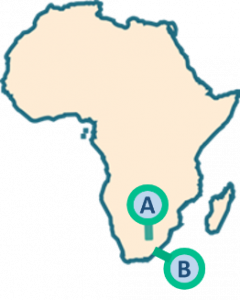H3Africa Research Project
Immunoglobulin Gene Diversity in an African Population and Impact Antibody Function in HIV Infection
The Goal: to explore the diversity of antibody genes in an African population and the impact of this variability on immune responses to HIV infection, to enable development of more effective vaccines.
Project Leads
Students
The Problem
Immunoglobulin genes, amongst the most variable genes in the human genome, encode antibodies which are critical components of our immune defense against pathogens. The diversity of immunoglobulin genes within African populations is understudied compared to other populations. Documenting this variation, and defining its impact on HIV infection and other viral infections such as SARS-CoV-2 and influenza will allow us to develop more effective vaccines and therapeutics antibodies.
Project Strategy
- To characterize genetic diversity in the part of antibodies responsible for binding pathogens, the Fab, in a cohort of African women at high risk of HIV infection.
- To characterize genetic diversity in the Fc regions of immunoglobulin genes, which are responsible for recruiting immune cells.
- To examine the effects of genetic variation on the immune responses to viral infection (including HIV, SARS-CoV-2 and influenza).
Potential Impact
This project will document the high levels of genetic diversity in immunoglobin genes in an African population compared to other global populations. It will also link novel genetic diversity to antibody function in HIV, SARS-CoV-2 and influenza infection. Understanding this will allow us to design more effective vaccines and therapeutics against these and other pathogens.
Project Sites

South Africa
A: National Institute for Communicable Diseases/ National Health Laboratory Services, Johannesburg
B: CAPRISA, KwaZulu Natal
Non-African Collaborators:
Karolinska Institute (Sweden)










